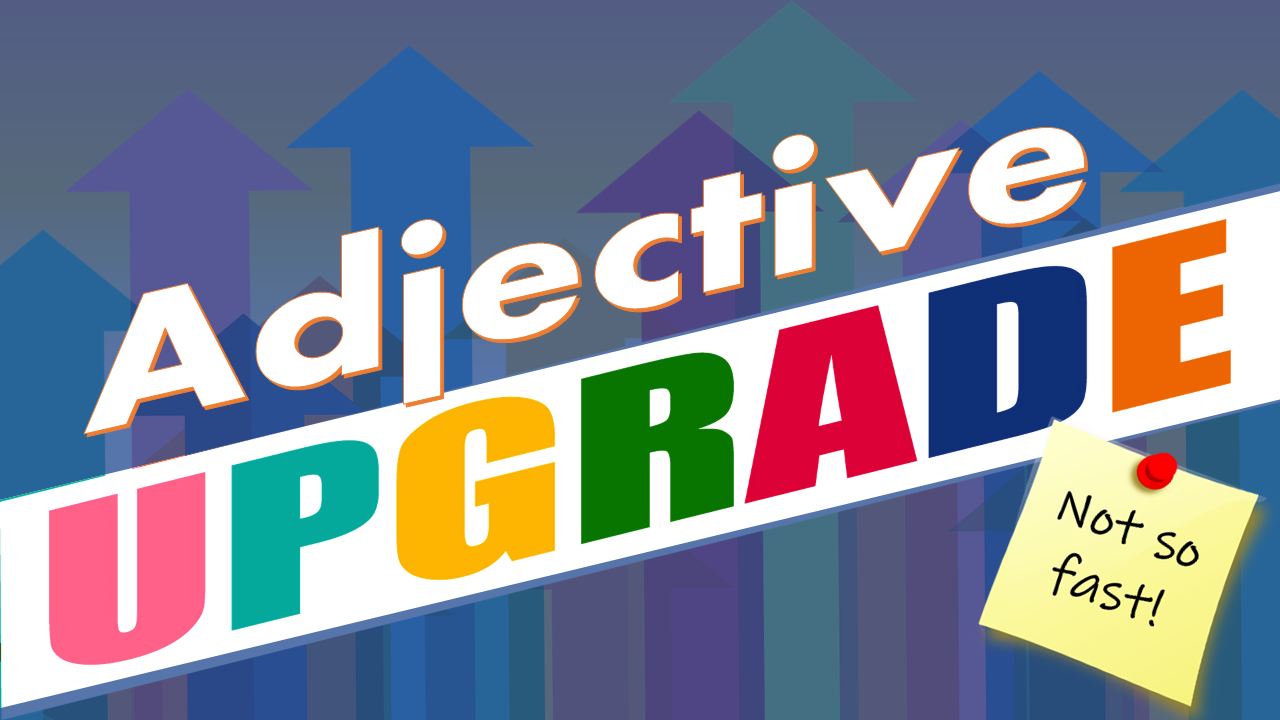Language and Status: An Introduction to Two Schools of Thought
Language and status are closely intertwined. The language choices you make reveal information about your identity, background, and the formality of the situation. Two schools of thought influence our decisions on whether language use is “correct” or “incorrect:” prescriptivism and descriptivism.
With a background as a linguist, I lean toward descriptivism. But with my role as a language analyst who creates WordRake’s editing algorithms, I must embrace a healthy dose of prescriptivism. If you’re buying editing software or reading this blog, there’s a high chance that you also engage in this balancing act, but for your career, you most likely lean toward prescriptivism.
This blog will introduce you to these two viewpoints and how I manage this cage match—I mean, how I balance these competing approaches. (Though prescriptivism and descriptivism are relevant in all languages and societies, I will focus on English and English-speaking countries here.)
Prescriptivism: Language as It “Should” Be
Prescriptivists argue for how language should be used. They support traditional grammar rules and often resist changes in language, believing that some forms are inherently better than others. For prescriptivists, the formal register is preferable in most situations. This viewpoint dominates in many English teaching environments.
An example of a prescriptive rule is the prohibition against ending sentences with prepositions. This rule, rooted in Latin-based grammar preferences, suggests that “That was the airplane on which I traveled” is superior to “That was the airplane I traveled on.” But in reality, English speakers frequently and correctly end sentences with prepositions, as seen in questions (“Where are you from?”) and sentences with phrasal verbs (“My alarm woke me up”). I’d even argue that unquestioningly following this rule—which is really an outdated myth—will lead to more awkward sentences and confusion. That’s the opposite of the goals of communicating (even prescriptivists wouldn’t say “I don’t know from whence Bob is” over “I don’t know where Bob is from”).
Descriptivism: Language as It Actually Is
Meanwhile, descriptivists don’t include opinion and morality when evaluating language usage. They accept language as it is used, defining grammar or vocabulary as “correct” if native speakers consistently understand it. Descriptivists see changes in language as natural and inevitable, and they categorize language that deviates from the norm as “marked” rather than “wrong” or “bad.” As long as the utterance provides information, it is acceptable because it works. That said, descriptivists will note the additional information the utterance conveys about the speaker or the situation. The world of modern linguistics is descriptivist.
According to descriptivism, a sentence is ungrammatical only if native speakers neither understand nor use it consistently. If enough people use and understand a particular construction, it is considered grammatical—even if it deviates from traditional rules. But if something is grammatically possible yet many people speaking the same dialect don’t like it or say it sounds wrong, linguists refer to it as marked. In other words, what prescriptivists label as “wrong,” “bad,” or “ugly,” descriptivists consider “marked.”
The Intersection of Language and Status
Many prescriptive grammar rules in English do not necessarily address incorrect usage. Rather, prescriptive grammar rules often align with social rules, indicating a higher social status when used in formal settings.
Because people follow social rules to create and enforce status, prescriptive grammar rules function as status markers. This incentivizes some people to reinforce prescriptive rules to protect their own status—or copy them to attain status. Insisting upon and using prescriptive grammar rules are easy ways to show, “I know the right social rules for this scenario.” Wielding these rules can give you more power when you need it most.
However, using language to signal or create belonging works both ways and it can be powerful to communicate fluently in different contexts, and to know when and how to do so. For instance, using overly formal grammar at a casual gathering can be as socially awkward as using informal language in a professional setting. And just as you may lower your social status by using a swear word or a double negative in a work meeting, you may also have a hard time making friends if you use only Latin cognates or subjunctive verb tenses at a birthday party.
The Balancing Act: Drawing from Both Worlds for Better Editing
WordRake’s philosophy is to balance descriptive grammar with prescriptive grammar. This level of nuance sets WordRake apart from other editors. Humans on the WordRake team (linguists, programmers, lawyers, and grammarians) evaluate each type of edit to determine whether the prescriptive form or the descriptive form will be more effective for our clients’ goals, and whether they are using the software’s Brevity mode or Simplicity mode. Importantly, WordRake recognizes the delicate nature of adhering to social norms while also helping clients produce language that is fair, unbiased, and inclusive. For example, WordRake deletes redundant words from clichéd expressions (prescriptive) and recognizes all gender pronouns in edits (descriptive). WordRake also edits many passive constructions (prescriptive) and maintains the author’s use of contractions in edits (descriptive).
Examples of WordRake’s Prescriptive Edits
If your sentence breaks a prescriptive rule, it may make your readers stumble, force them to reread it, or even annoy them. These reactions to your writing make it less likely that you will convince your reader of your point. In these cases, WordRake makes prescriptive edits. Here are just a few examples:
who ⇒ whom
Who was it that Angela said Whom did Angela say she had seen?
irregardless ⇒ regardless
The president’s quote about emergency rooms just means Americans must pay for most costs, irregardless regardless of whether the current administration gets the laws passed.
could care less ⇒ could not care less
The country has gone to great lengths to basically tell the international community it does not care what it thinks and could care less could not care less about its standards.
comfortability ⇒ comfort
How do you bring that same level of comfortability comfort to all areas of your life?
personally (delete)
I personally spoke with deputy fire marshals, City officials, City attorneys, MUD officials and attorneys.
introductory clauses (delete)
In conclusion, the The contract dispute requires scrupulous analysis and a strategic resolution plan to safeguard the interests of both parties.
only (reposition)
A potion inside covers the locket, which Sorcerer guesses can only be removed only by drinking the liquid.
We cover more examples of how WordRake deletes unnecessary lead-ins, treats non-gradable adjectives, and transforms passive voice in our blog.
Examples of WordRake’s Descriptive Edits
Most of WordRake’s edits are prescriptivist because the software edits professionals’ writing, which tends to follow prescriptive grammar rules. But even people with excellent writing skills break acceptability rules sometimes. Some clichés have become so frequent, they sound natural. Sometimes, we focus on the grammaticality of a sentence and forget to consider the acceptability. In these cases, WordRake makes descriptive edits. Here are some examples:
redundant words (delete)
However, Appellee did nothing whatsoever to overcome Appellant’s affirmative defenses.
We saw a brief hint of a tail in the movie poster; now, another comic book character has been revealed.
clichés (make direct)
Thus, it is not our general style to we generally do not send two, three, or four lawyers to a meeting simply for the convenience of the lawyers.
Frankly, it is time that Congress started Congress should start listening to the ordinary people.
We cover more examples of how WordRake treats clichés and adjusts register and aggressive tone in our blog.
WordRake’s Descriptive Simplicity Mode
WordRake’s Simplicity Mode and plain language in general are inherently descriptivist. WordRake’s Simplicity Mode makes more accessible and informal substitutions to formal vocabulary (defined as words in a higher register, words that have higher difficulty scores based on different academic metrics, and words that come from Latin, which is historically the English used in academia, hospitals, and government). Here are just a few of our thousands of Simplicity mode edits:
simplifies subjunctive mood
She made a request that Bob asked for Bob to go to the meeting.
It is important that the The people on those medications should never stop taking them.
modifies difficult vocabulary
The first of said the notices declared that the lessee was selling wine in violation of the lease.
Nonetheless, Still, the manner in which way a habitat is altered changed is often a major determinant in population change.
In summation, the The prosecutor’s characterization of the defense’s contention claim that the witness possessed had a gun as a red herring distraction did not exceed the broad bounds of rhetorical comment permissible in a closing argument.
Learn more about WordRake’s Simplicity mode here and about plain language here.
Both prescriptivism and descriptivism have their place in professional writing. When prescriptivism isn’t being used to discriminate, it offers rules that, when followed, will help you fit in in formal settings. WordRake will help you write clearly without sounding stodgy because our team of humans has already done the work to balance prescriptive and descriptive writing rules. Try WordRake’s nuanced editing software for free for 7 days.
About the Author
Danielle Cosimo is a Language Usage Analyst for WordRake. Before joining the team, she was a translator and editor for non-native English speakers applying to degree programs in the United States and the UK. Danielle is formally trained in linguistics and has a certificate in computer programming. She is fluent in English, Portuguese, and Spanish. She applies her interdisciplinary knowledge to create WordRake’s editing algorithms. You can find her on LinkedIn.









